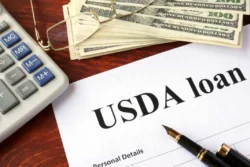When you’re in the market for a new home, you have a lot of options to consider as far as a home loan goes.
One factor of your home loan that’s going to be on your mind a lot is your interest rate. With a great interest rate, you can save yourself from spending a lot more money over the life of your loan.
In the past, you may have heard about variable or adjustable mortgage rates as compared to a fixed rate. So to help you in choosing which option will be best for you, here are three tips for deciding between a fixed rate and a variable rate home loan.
Your Stomach For Risk
Something you’ll want to consider when deciding which type of home loan interest rate to choose, according to Amy Fontinelle, a contributor to Investopedia.com, is how much risk you’re comfortable with.
When you choose a fixed rate home loan, you know the exact interest rate that you’ll be paying throughout the entire time that you’re paying on your loan. But with an adjustable or variable interest rate, there’s always a chance that that rate will rise when your interest rate resets after a period of time. Now, if this is a risk you’re willing to take in order to secure a more favorable interest rate for a period of time, going with an adjustable-rate might work well for you. But if you’re not ready to potentially pay a lot more if your interest rate rises a lot, you may be better off with a fixed rate.
Your Current Buying Power
One reason why people have often chosen to go with a variable rate on their mortgage in the past was because a smaller interest rate gave them more buying power.
According to Hal M. Bundrick and Beth Buczynski, contributors to NerdWallet.com, what this means is that if you have a tight budget for your new home, choosing to go with a variable interest rate could allow you to quality for spending more money on the home since you’ll be paying less on your monthly payment. So if this is something you’re wanting, a variable rate might make sense.
What The Market Is Doing
Another factor that you’ll want to consider when weighing a fixed rate loan against a variable rate loan is what the market is doing.
Tanza Loudenback and Laura Grace Tarpley, contributors to Business Insider, share that since interest rates for home loans are almost historically low right now, there’s a good chance that any movement on your interest rate will increase it, which isn’t what you want with a variable rate. But by watching the market, you can try to make an educated guess about what will happen with rates in the future.
If you’re trying to decide whether you should go with a variable home loan interest rate or a fixed rate, consider using the tips mentioned above to help you make this choice.






